Why ‘the worst-run club in the country’ is now playing for its future
With the threat of relegation looming once again as Everton host Liverpool at Goodison Park, the plight of one of England’s most successful clubs has come to sum up every major issue in the modern game, writes Miguel Delaney

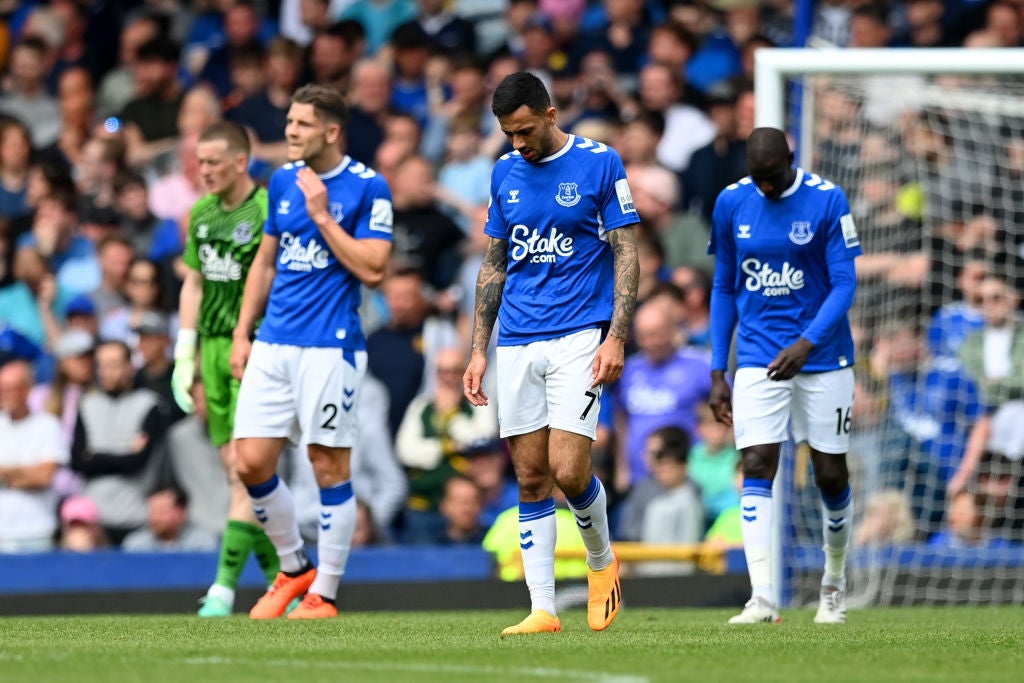
Your support helps us to tell the story
From reproductive rights to climate change to Big Tech, The Independent is on the ground when the story is developing. Whether it's investigating the financials of Elon Musk's pro-Trump PAC or producing our latest documentary, 'The A Word', which shines a light on the American women fighting for reproductive rights, we know how important it is to parse out the facts from the messaging.
At such a critical moment in US history, we need reporters on the ground. Your donation allows us to keep sending journalists to speak to both sides of the story.
The Independent is trusted by Americans across the entire political spectrum. And unlike many other quality news outlets, we choose not to lock Americans out of our reporting and analysis with paywalls. We believe quality journalism should be available to everyone, paid for by those who can afford it.
Your support makes all the difference.As Liverpool prepare for a derby that could decide their title challenge, there are already comments around the training ground about how Everton will inevitably play above themselves. That would be quite a rise, though, because Sean Dyche’s side have been largely dismal. They may have won at the weekend against Nottingham Forest but it’s not like morale is much better. The controversy around Forest’s post-match statement, criticising refereeing decisions, only adds to the mood. There’s been a sense of getting away with it, as much bigger issues weigh over the club. If Liverpool are playing for Jurgen Klopp’s place in history, Everton are playing for their future. It really is that extreme, with the club potentially weeks from administration.
Even on the football side, few are exactly happy, which sums up the modern Everton. They have become a tragic case study for many of the problems in the modern game. A lot of the issues that complicate football in 2024 can be seen at Goodison Park, as if the distinctive history of this great club has uniquely distilled all these problems. That goes from the pitch to almost everything off it. There’s how you play, how a club is run, what a club can aim for, how you compete, how you spend, the economy of the sport, right up to regulations and - above all - ownership.
Everton have brought all this together. It all stems from one huge moment in football history, when the team were much closer in quality to Liverpool and consequently joined them in a game-changing plan. The Merseyside rivals were two of the original “big five” - along with Manchester United, Arsenal and Tottenham Hotspur - who pushed for a breakaway from the Football League to the Premier League. Everton’s fall from that status has made them a cautionary note in football history. Just like Rangers and Milan, who were both among the greatest influences in the formation of the Champions League, they have been victims of the world they helped create. Everton couldn't assert the same control in that world, and the most relevant truth right now is that it has ensured their finances have spun out of control.
Despite that, and the morass of confusing details in their ongoing PSR cases, it is possible to track the club’s demise and how all of these modern issues became intertwined and influenced each other.
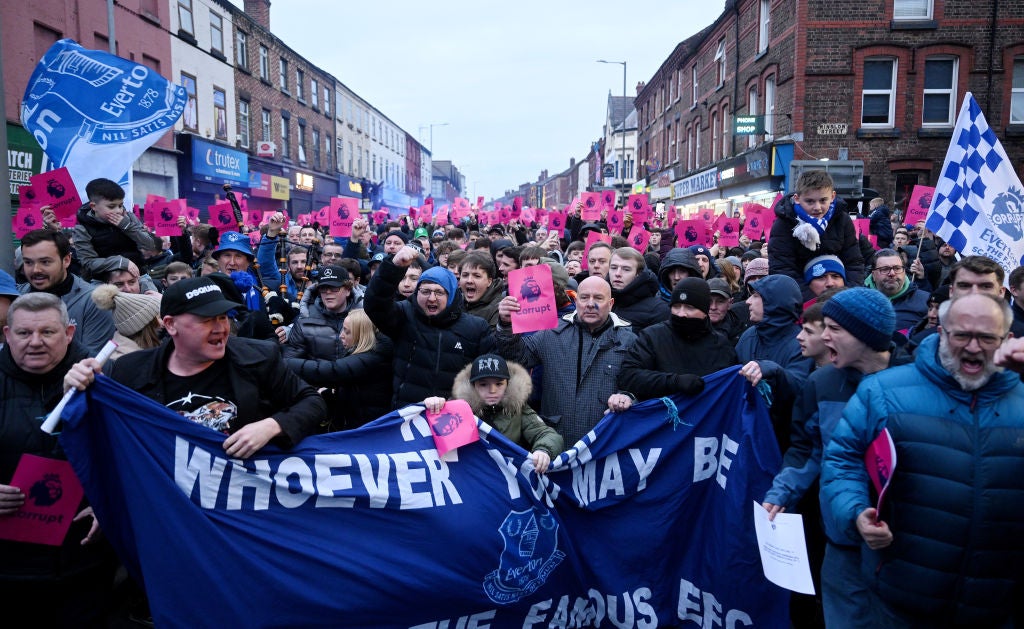
Get Premier League updates from Miguel straight to your phone when you join our free Indy Football WhatsApp group
Put bluntly, the Premier League was a huge factor in making football a financial arms race. Born from the neoliberalism of the 1980s, it combined with other pivotal moments like the Bosman ruling, the Champions League and even the growth of the internet to make the game the most open market in the world. Clubs could now become as big as their commercial revenues allowed. That fostered these “virtuous cycles” where more money meant better signings, which meant more international interest, which meant more money. That goes on and on until you reach a point of concentration of wealth, where there are only about 15 super clubs and 12 of them try to break away again.
Everton found themselves spun out of the cycle, and enduring a poor spell at exactly the wrong time. They had been the English league’s third most successful club on the foundation of the Premier League, with nine titles leaving them only behind Arsenal and Liverpool. They then found themselves at the wrong end of the table as interest in the Premier League went global. David Moyes restored respectability and a sense of identity, but a constant discussion in the last few years of his era was about a “glass ceiling”.
That ceiling has now been mostly paved over, with those above commercially going into the stratosphere. It eventually went from the old “big five” to the new “big six”, with a host of other connected factors combining to widen financial gaps. In Everton’s case, they became the second club in a medium-sized northern city, that never got the visibility that came from qualifying from the Champions League. Bill Kenwright belatedly realised what the hierarchy of clubs like Aston Villa and Newcastle United had in the mid-2000s. It was impossible for that anachronistic strand of British millionaire owner to properly compete in a new world of Roman Abramovich, Abu Dhabi and billions upon billions of income. They had to sell up, but couldn’t attract that top echelon of buyer.
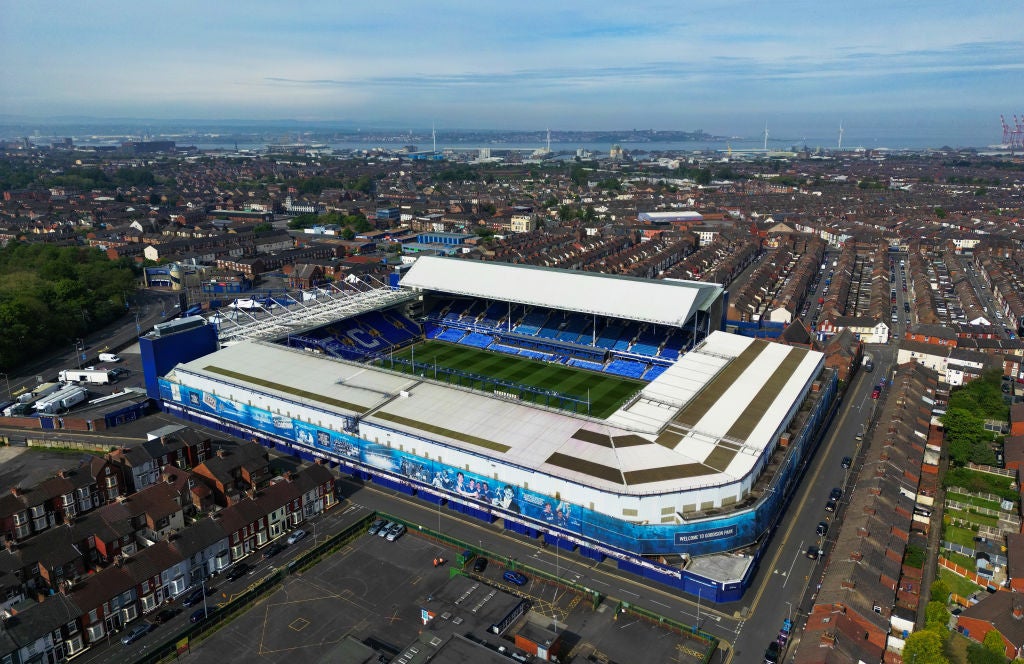
This has provoked an identity crisis, that ultimately led to this existential crisis. Given their history, Everton understandably felt they should be competing at the elite level. The problem was that they couldn’t pay the same wages, but kept trying to play the same game. Everton made a lot of decisions that seemed befitting of a “big club” - right up to hiring names like Ronald Koeman and even Carlo Ancelotti, to then bringing in James Rodriguez - but they could never go to the scale required. There’s an argument that it was the most self-defeating and frustrating pursuit in English football history, which inevitably led to common criticisms that Everton have been “the worst run club in the country”. Even when they admittedly got close, such as with Romelu Lukaku under Roberto Martinez, it just meant that wealthier clubs immediately took their best players.
It’s galling to imagine what Everton could have been had they taken the decision to adopt a model like Brighton’s a decade ago, but that would have involved accepting some hard truths.
Instead, they threw themselves head first into the Premier League’s maddening wage race, to the point salaries have occupied more than 80 per cent of their budget.
That is how they have become this hub for the most recent Premier League issues, from the debates about competitive balance to regulation. This historic club have set a historic precedent, as they were the first to be docked points for breaches of cost-control rules. The controversy has provoked widespread debate about who can “invest” to try and compete. And yet Everton’s entire situation illustrates the folly of that model, and why solutions to this debate should go in the opposite direction. It should be about redistribution of current wealth, not leaving the entire competitiveness of the game dependent on who wants to buy you. That isn’t sustainable. Imagine what would have happened to Everton, after all, if they’d been allowed to keep spending. As repeated figures with knowledge of the club say of the last few years, where was the financial discipline? Who was warning that, if they keep doing this, they were going to get trouble?
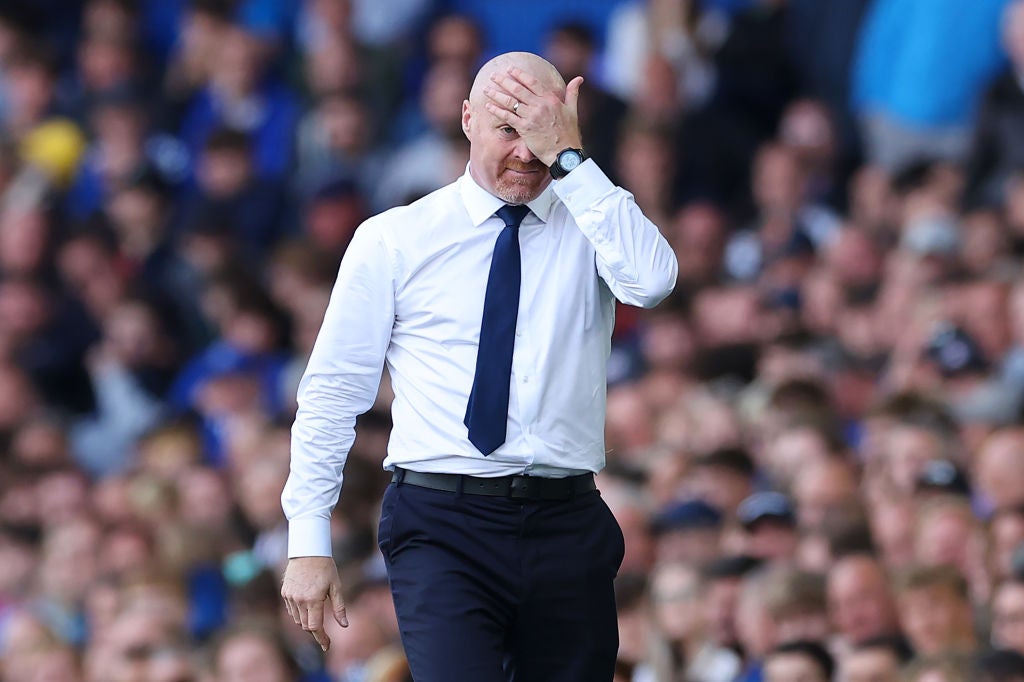
Worse, what would have happened if they became even more dependent on sponsor Alisher Usmanov’s money, as was his plan? His sanctioning for links to Vladimir Putin could have been much more damaging.
Now, Everton are looking for new buyers, as a controversial takeover by 777 Partners has faltered. The latter has been welcomed within large sections of the fanbase - and many people within the game - due to both the investment firm’s concerning record with other clubs.
There was also the core issue that they were only interested in the purchase since they saw Everton as a “distressed asset”. It should be an indictment of modern football that a club of this stature can be viewed in this way in any situation, but especially after receiving billions from Premier League broadcast income over three decades. If that is the case, something has gone wrong with the entire model. What is the point of so much money? What does it actually serve?
Paul Quinn, an Everton supporter who writes about the club from a background of financial expertise, certainly feels that is the case. He has similarly been outspoken against 777.
“It’s obviously very disappointing we are this case study. I think it reflects two things,” Quinn says. “One is the administration of football. Now, the Premier League would argue it’s not their job to ensure Everton don’t go out of business but, given how there should be inter-dependency among all clubs, if one club goes, it’s damaging to football generally.
“Any owners should be the custodians of their own club, but the Premier League have to be the custodians of the game. So the owners have failed and the Premier League have failed. This is ultimately why the regulator’s coming along.”
The hope is that it isn’t too late for Everton, but they now face perhaps the most significant month in the history of the club. If no new buyer is found - and it must be a buyer that commits funds to the new stadium - they could go into administration and face further points deductions. There is at least interest beyond 777.
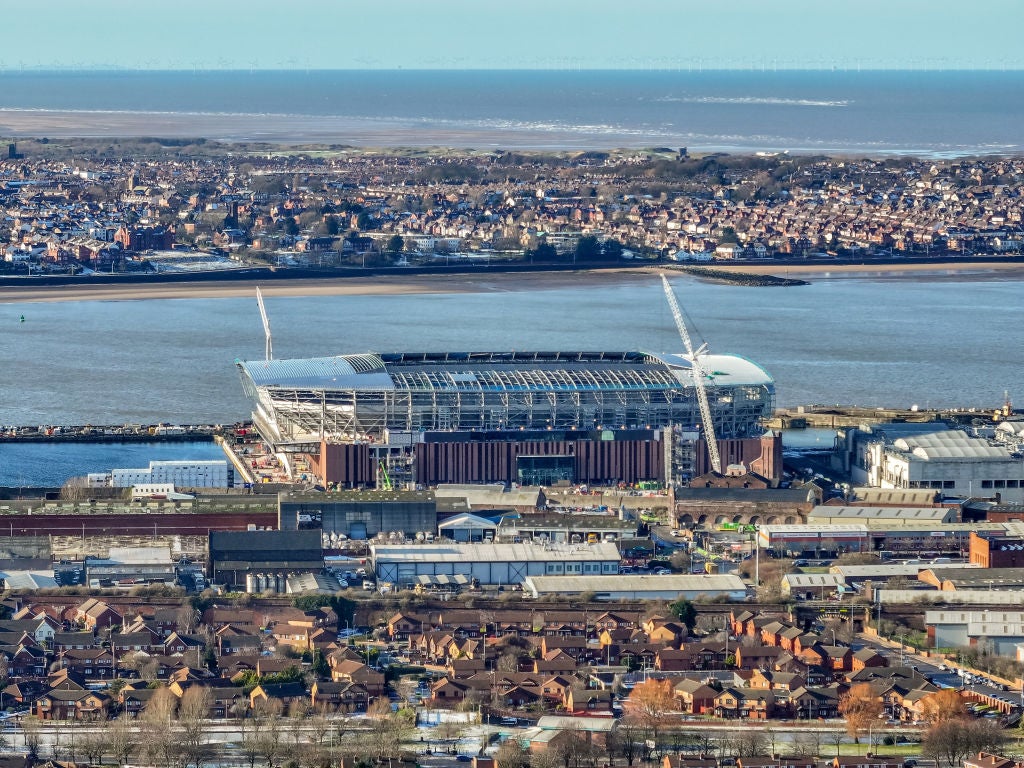
The following is a view that fans might find hard to swallow, and even rage against, but it is one that has been expressed within football: that some kind of reckoning might actually be best for the club’s soul, and long-term future.
Everton have been getting away with their Premier League survival for years. Far from resetting the club, though, it has only caused this build-up of so many issues that the situation now looks unfixable. Everton are so top-heavy they are almost set to topple over.
Would it be better for the future to rise again as a sustainable phoenix club owned by the fans? It’s not like they wouldn’t quickly shoot through the divisions. There are many successful examples in other countries, not least Italy.
Quinn doesn’t quite go that far. “Ideally, no, but it’s a better option than an owner like 777.”
That says enough. It still says even more that one of the Premier League’s founding clubs, and one of England’s most successful, have come to sum up every major issue in the modern game.
Join our commenting forum
Join thought-provoking conversations, follow other Independent readers and see their replies
Comments